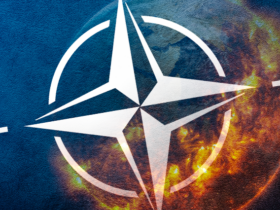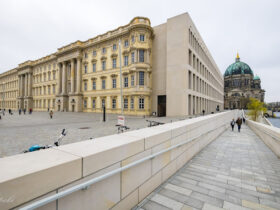The UK government recently announced that US backed opposition candidate Juan Guaido would be given exclusive access Venezuelan gold. This news alerted the international press and, above all, to the government of Nicolás Maduro, who has been attempting to repatriate some 30 tons of Venezuelan gold. Venezuelan reserves are now at risk because of the difficult international context arising from Venezuela’s economic crisis and tensions with the US and its allies.
The Bank of England has been formed throughout the 20th century as one of the preferred banks for other central banks to deposit their reserves in gold. Despite little information provided by the various financial institutions, it is now estimated that around 70 countries have relied on this British institution to deposit huge amounts of gold. The aim is to gain support for investments and different business transactions, as well as to achieve economic benefits as if it were a “bank deposit”. Among the approximately 70 countries, many of them are Ibero-American such as Bolivia, Honduras, Guatemala, El Salvador, Nicaragua, and even Argentina.
In 2011, the late President Chávez had repatriated 160 tons of gold that was located in different countries such as the United States and others belonging to the European Union. It was an intelligent movement of economic sovereignty despite the clear economic limitations that his country was going through. In 2018, Venezuela had requested the repatriation of 14 tons of gold valued at approximately $550 million, but the Bank of England was reluctant. allegedly over fears that Maduro would spend it for ‘personal benefit’. In other words, the United Kingdom was meddling in a domestic Venezuelan issue and violating international trust. This led to the President of the National Constituent Assembly of Venezuela, Diosado Cabello, accusing the Bank of England of open theft.
The Venezuelan authorities interpreted the decision as part of the Economic War that the United States and the European Union have been waging against the Venezuelan government. The economic area is only one front in the political, financial and social war they are leveling against the Maduro government. The economic situation in Venezuela, in addition to having had major limitations during much of Chavismo and having worsened afterward, meant that of the 364 tons of gold that the Central Bank of Venezuela had in 2014, at present it has only 160 tons remaining. This is because Venezuela was unable to return numerous loans to different banks with which it had entered into commercial agreements and had put his gold as a warranty in exchange for US dollars. Thanks to the economic inability to manage the Venezuelan government’s economy, added to the international blockade, Venezuela gradually lost much of its gold reserves.

In 2020, the tensions were renewed because the British High Court declared that Juan Guaido is the only one who can access Venezuela’s gold stored in the Bank of England. This statement was strongly felt in Caracas because the intentions of the return of Venezuelan gold (valued at $1 billion) was supposed to help transfer resources to the United Nations Development Program (UNDP) in order to obtain food and medicine. For this reason, the Central Bank of Venezuela proceeded to make a demand to the Bank of England, while the vice president, Delcy Rodríguez, declared that neither the opponents nor the international community could now accuse the Venezuelan government of trying to use this money for other purposes except those which are strictly humanitarian.
Despite the Venezuelan government’s statements, the United Kingdom has been firm in its decision not to return the gold reserves, mentioning that it recognizes Juan Guaido as interim constitutional president and, therefore, is the only one that can manage the reserves belonging to the Caribbean country. This statement is not accepted by Venezuela, who declared that he would legally appeal against this British decision.
Conclusions
The situation in Venezuela has been very complicated economically for more than a decade, with complications leading the country to historic levels of devaluation, mass migration, and a huge reduction in GDP per capita. To this we must add the political instability brought about by the United States, which has carried out an economic blockade that has further damaged the Venezuelan economy.
The United Kingdom initially showed reluctance to return Venezuelan gold, but in declaring Guaido as interim president, it has moved into the realm of direct political interference and declared a de facto trade war against the Venezuelan government. Despite the fact that the United Nations did not recognize the elections in Venezuela, Maduro continues to hold power, enjoying the recognition of more than 20 countries in the world, including China, Iran, Russia, Iran and Turkey. On the other hand, Guaido, despite proclaiming himself president, and also not being recognized by the United Nations, enjoys the recognition of 54 countries, mostly Western, among which the United States, United Kingdom, France stand out.
The situation in Venezuela is dramatic in all aspects: internal political destabilization is a reality due to the lack of confidence in the Venezuelan opposition that refused to participate in the parliamentary elections this year. The international situation of blockade and permanent crisis has led Venezuela to cede some of its sovereignty, mainly to China, in exchange for being able to stay in power. For the time being, the humanitarian drama cannot be solved, even with the Venezuelan gold stored in the Bank of England, and this situation must be understood as a lesson for those States considering banking in the United Kingdom.

















Leave a Reply